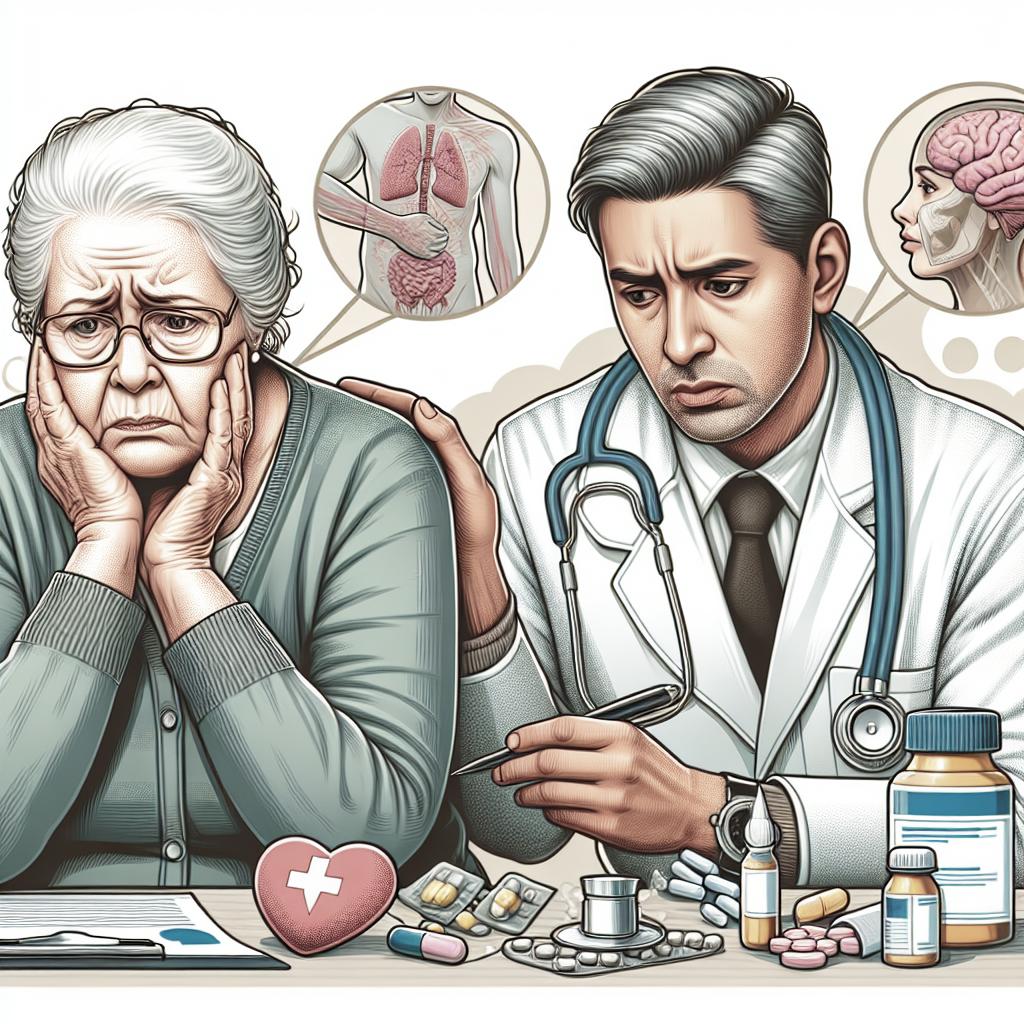<>
# Signs of Distress in the Elderly: Understanding and Addressing the Concern As people age, they may encounter various stressors and challenges that can significantly impact their well-being. Recognizing signs of distress in the elderly is crucial for timely intervention and support. This post will explore the causes and signs of stress in older adults, offering practical advice for helping them cope. We’ll begin by discussing the various factors that contribute to stress, followed by the common signs that indicate an elderly person may be struggling. Lastly, we’ll provide actionable tips to alleviate their stress and ensure better mental and emotional health. “`
Causes of Stress
“` #### Physical Health Issues One of the primary causes of stress in the elderly is physical health problems. As people age, they are more prone to chronic illnesses such as arthritis, hypertension, diabetes, and heart disease. These conditions can lead to constant pain, fatigue, and decreased mobility, all of which can be deeply distressing. The regular visits to healthcare facilities, medication management, and the need for physical therapy can add to the overall stress levels. #### Emotional and Psychological Factors Emotional and psychological factors also play a significant role in causing stress among older adults. Depression, anxiety, and feelings of loneliness can be quite prevalent in this demographic. Many elderly individuals might also struggle with the loss of loved ones, leading to grief and an increased sense of isolation. Furthermore, the fear of losing independence and being a burden to family members can weigh heavily on their minds, exacerbating stress. #### Social Isolation Social isolation is another significant stressor. As friends and family members pass away or move away, the social circle of an elderly person may diminish. Limited social interaction can result in loneliness and a lack of mental stimulation. Additionally, mobility issues or living in a location without easy access to social activities can further amplify this sense of isolation. “`
Signs of Stress
“` #### Physical Indicators Stress in elderly individuals often manifests through various physical symptoms. These can include frequent headaches, digestive problems, and a noticeable change in appetite—either an increase or a decrease. Sleep disturbances are also common; many older adults might experience insomnia or find themselves waking up frequently during the night. Unexplained weight loss or gain and general fatigue can be other red flags indicating that an elderly person is under significant stress. #### Behavioral Changes Another way to identify stress in older adults is through changes in their behavior. An individual who once enjoyed socializing may start to withdraw from friends and family. They might also exhibit signs of agitation, irritability, or even aggressive behavior. A marked decline in self-care, such as neglecting personal hygiene, household chores, or basic daily routines, can also be an alarming sign of distress. #### Cognitive Issues Cognitive decline can be both a result of and a contributor to stress in the elderly. Symptoms like memory lapses, confusion, and difficulty concentrating may become more pronounced when an older adult is under significant stress. They might also struggle with decision-making or experience increased forgetfulness. These cognitive changes can further complicate their ability to manage daily activities, creating a vicious cycle of stress and cognitive impairment. “`
How to Help
“` #### Emotional Support Providing emotional support is crucial in helping elderly individuals manage stress. Simple acts of listening and showing empathy can make a significant difference. Encouraging open communication about their feelings and concerns can also alleviate some of the emotional burden they may be carrying. Additionally, involving mental health professionals like therapists or counselors can provide them with strategies to cope with stress more effectively. #### Encouraging Physical Activity Regular physical activity can have a profound impact on reducing stress levels in older adults. Gentle exercises like walking, swimming, or even chair yoga can enhance physical health and boost mood. Physical activity stimulates the release of endorphins, which act as natural stress relievers. Additionally, engaging in group exercises can provide social interaction, further combatting loneliness and stress. #### Ensuring Social Engagement Facilitating opportunities for social engagement is another key way to help elderly individuals manage stress. Encouraging participation in community centers, social clubs, or hobby groups can provide much-needed social interaction and mental stimulation. Additionally, technology can offer solutions to social isolation—teaching older adults how to use video calls or social media platforms can help them stay connected with friends and family. “`
Reduce Your Stress
“` As caregivers or family members, it is essential to manage your own stress levels to provide better support to elderly loved ones. Ensure you have a support system of your own, whether it’s friends, family members, or professional counselors. Taking breaks, practicing mindfulness, and engaging in activities you enjoy can help you stay balanced and effective in your caregiving role. “`
Submit a Comment
“` We’d love to hear from you! Have you noticed signs of distress in an elderly loved one? How have you helped them cope? Share your experiences and tips in the comments section below to help others who might be facing similar challenges. “`
See for Yourself
“` Want to explore more on elderly care and stress management? Below is a summary of key points from this article. Use this table as a quick reference guide to better understand and address stress in the elderly. “`
| Category | Details |
|---|---|
| Causes of Stress | Physical Health Issues, Emotional and Psychological Factors, Social Isolation |
| Signs of Stress | Physical Indicators, Behavioral Changes, Cognitive Issues |
| How to Help | Providing Emotional Support, Encouraging Physical Activity, Ensuring Social Engagement |
“` Understanding the causes, signs, and solutions for stress in the elderly is vital for improving their quality of life. By staying informed and proactive, we can offer the necessary support and care to help them live comfortably and happily.


